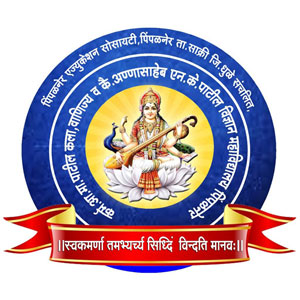
Best Practice - I: Tree Plantation and Conservation
Goal:
A remarkable feature of the college is tree plantation and conservation.
The object of conducting the best practice tree plantation and conservation in college premises For beautification of campus,
- For healthy atmosphere,
- To create Oxygen Bar
- To control noise and air pollution,
- To increase biodiversity,
- To make premises eco-friendly.
The Context:
The survival of human being depends mainly on the survival of trees and forest. Trees are helping us in immensely important ways. Trees plays significant role in maintain equilibrium of the environment, many ecological process. Besides trees have social, spiritual and medical significant work.
According to national forest policy forest cover should be 33 of the total land but in India it is nearly about 24. Tree plantation and conservation is the best solution to fight against the global warming. To achieve the goal, our institute initiated this activity from July 2018. Plants have important role in climate change. The deforestation contributes to global warming phenomenon through the rise in the level of CO2. Tree plantation drive can help to reduce the concentration of this problem by removing CO2 from the atmosphere. Trees reduce the heat through the evaporation cooling and reducing the amount of sunlight that reaches the Earth. We hope it might be helpful to solve the problem of global warming up to certain extend. Many efforts have been taken by Government of Maharashtra through social forest department, some NGO,s and all educational institutes through NSS NCC.
The practice:
We have selected one acre of barren land adjacent to the college campus. First we built fencing wall for protection and clean the area then under the guidance of principal, our college students dug 80 pits for tree plantation at certain distance of suitable size. We brought humus soil and manure from outside. The pits dug by students were filled by this humus soil and manure. For plantation we brought sapling of trees of Neem, Pipal, Banyan, Gulmohar, Amla etc. from Social Forest Nursery- Pankheda. Tree plantation programme was organized on 16th July 2018 in presence of College Management Council, Principal, Staff and students. For protection and care one non-teaching member Mr. Tarachand Chaure was appointed by principal.
During the last three years college has planted different varieties of plants species at different intervals in the campus with the help of staff and students (NCC and NSS).Present green campus is the outcome of our sincere efforts under the guidance of Principal
All staff members create environment awareness among the students in the campus to propagate green campaign successfully.
Evidences of success:
All the sapling trees were grown and survived successfully and attended average height of 6 feet’s. The entire land of this area is covered by herbs, shrubs and bushes. Increased biodiversity was observed. Our students are taking efforts for survival of plants Mostly our non- teaching member Mr. Tarachand Chaure is taking more efforts by regular watering the plants and regular care vigilance of plants.
The green campus developed by college /Institute helps not only to save environment but also add beauty of campus, besides providing shade to our students and also used for scientific studies. College campus is enriched with varieties plant species. Eco campus strongly employed resulted in one of the beautiful and clean campus in the vicinity it has resulted in attracting students. The local peoples /stakeholders seeing this appreciated and thanked them for taking such great initiatives. These campus pictures were also spread in social media to give valuable message to society. Students became aware about importance of plants and familiar with the campus and various plants.
Problems encountered and resources required:
Initially land is rocky and impervious. That causes difficulty in digging the pits. Therefore we dug some pits by using JCB machine. In summer we face scarcity of water but Mr. Tarachand Chaure was managing it.
In summer season we have to face lot of water scarcity. Hence in order to meet requirement we need to Gram panchyat supply of water.
Best Practice - II: Vermiculture
Goal:
For research motivation short projects on vermiculture are given to the under graduate students for sustainable development.
Context:
Department of zoology involved in conduction of on vermiculture projects. The main aim objectives are to create responsibilities about the use of organic biofertilizer, pollution control, and organic refused recycling sustainable development. Project are given to those students they are especially has agricultural or farming background. Students involved utilizing organic refuse for the production of vermicompost thereby enhancing the scope of vermitechnology.
The Practice:
Most of the students of our college are from weaker section or farmer society. So the college department of zoology come out with unique activity for the production of vermicompost. The students get skill to handle earthworm, to collect agricultural refuse some chemical analysis.
Evidence of success:
First second year undergraduate students are coming in the department asking about this activity. Some students taking worms trying at home to multiply by using kitchen garden waste some students bring their parents to understand this activity.
Obtaining biofertilizer or vermicast, that is used in college campus as manure and some fertilizers can be sold to the staff members
Problems encountered:
At first it is difficult to find an adequate space for vermiculture, it is only restricted around the zoology laboratory. The limited infrastructure facility causes hindrance to expand this activity.
Notes:
This practice is eco-friendly can develop skill about the organic recycling. Vermicomposting is useful for sustainable development. Students can find financial source also.

